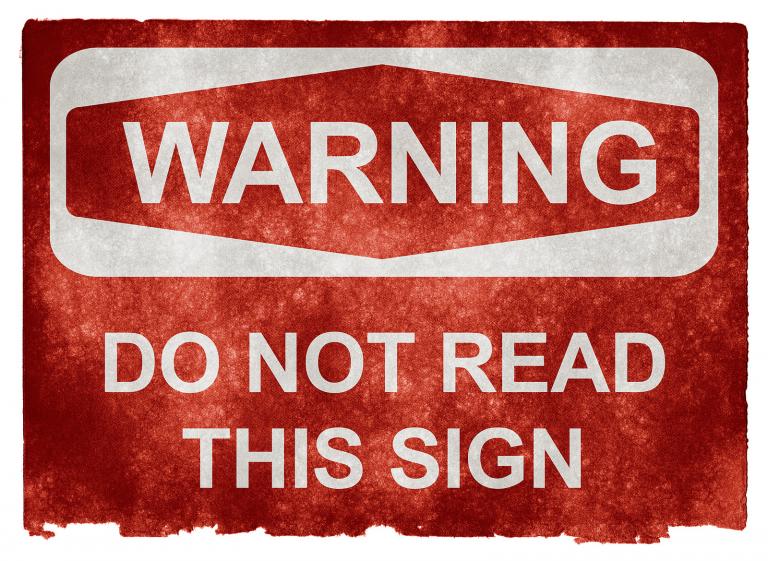
As so often with the snowflake left, the cure is worse than the disease. The law of unintended (but very obvious) consequences strikes again.
All of us, by now, are familiar with “trigger warnings,” admonitions about the “scary content” that is to come. They are supposed to protect users from harmful content that may make pre-existing mental health issues worse. However, social scientists Benjamin Bellet, Payton Jones, and Richard McNally now now posit these trigger warnings actually make things worse for people. Why? Because they increase “perceived emotional vulnerability to trauma, peoples’ belief that trauma survivors are vulnerable,” and the “anxiety to written material perceived as harmful.”
The Journal of Behavior Therapy and Experimental Psychiatry reported on their findings.
… the trio divided almost 300 subjects into two groups, one of which was given a trigger warning “before reading each of 10 passages from classic literature.” Half of those passages contained “explicit material” such as graphic depictions of killings.
The trigger warning group “proved far more likely to suggest passages containing distressful language would cause themselves and others emotional distress had they experienced trauma.”
“This finding could have significant implications in the context of ongoing cultural debates about the power of language in reinforcing perceived oppression,” social psychologist Craig Harper wrote. “That is, if we are telling students that words are akin to violence and can cause harm, and then giving them trigger warnings to compound that message, we risk increasing immediate anxiety responses rather than decreasing them.”
Why is it that universities, which claim to be bastions of knowledge, are filled with such stupid professors and administrators?
That’s the study that should be done.
Hat Tip: College Fix
Image Credit: Nicolas Raymond on Flickr









